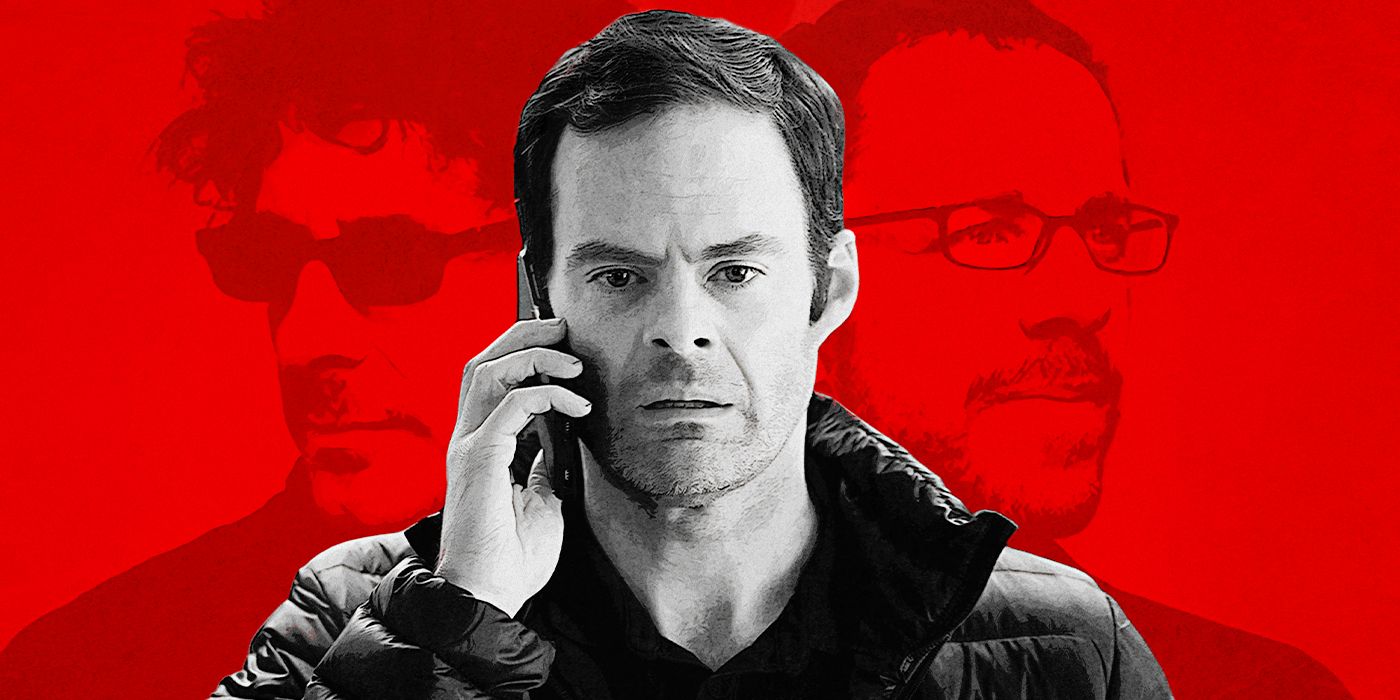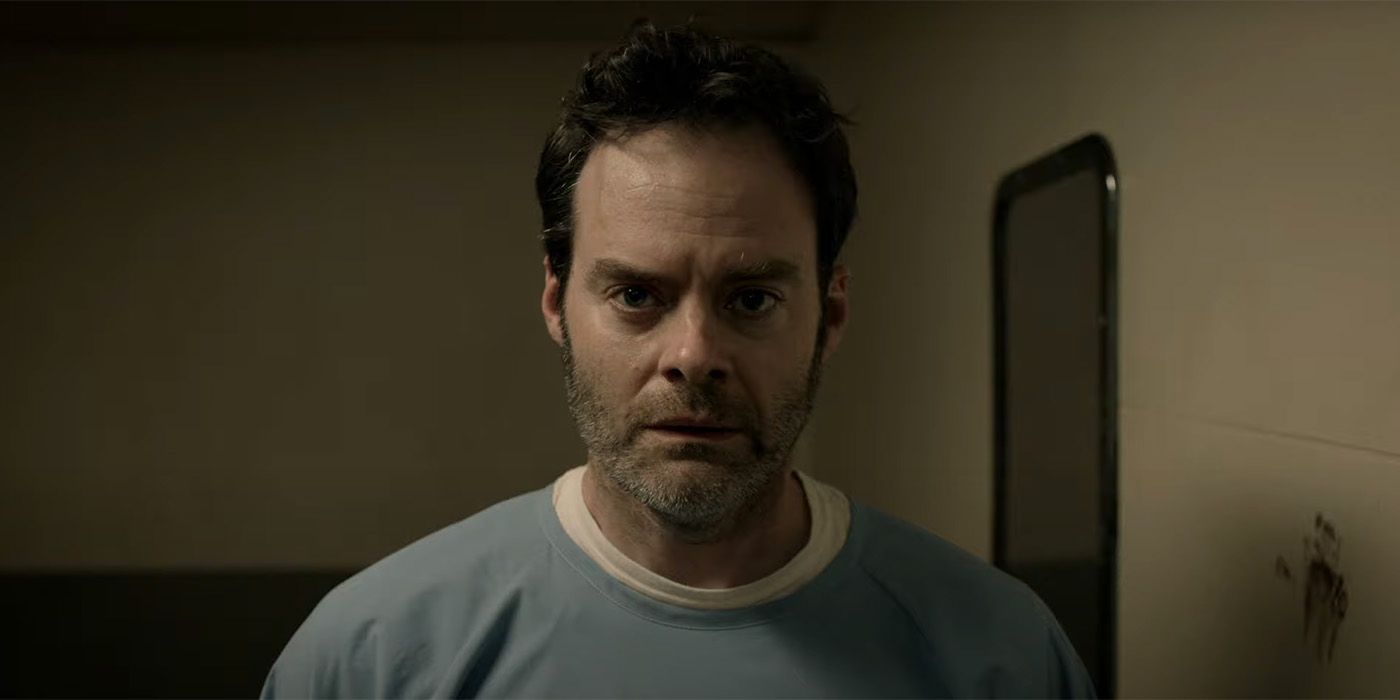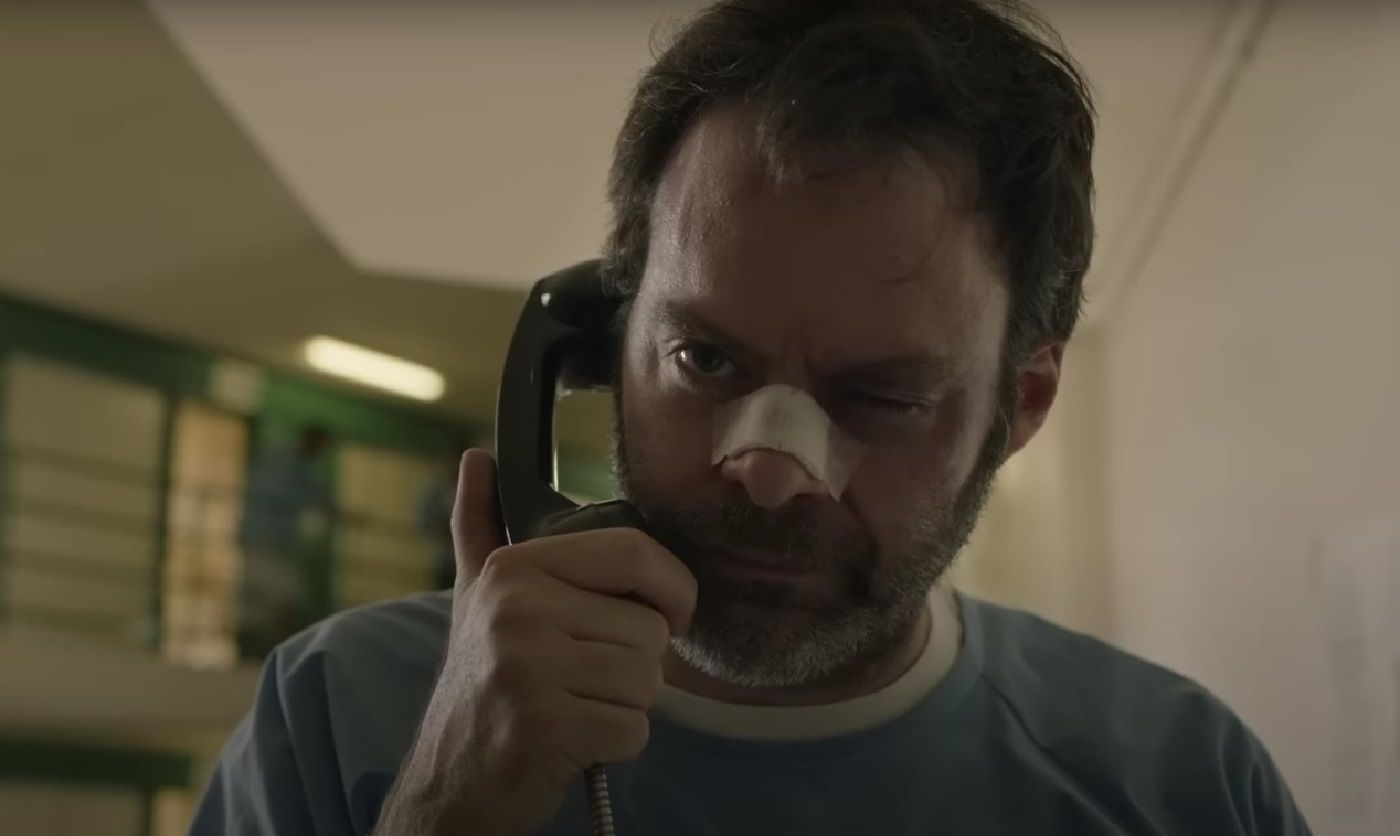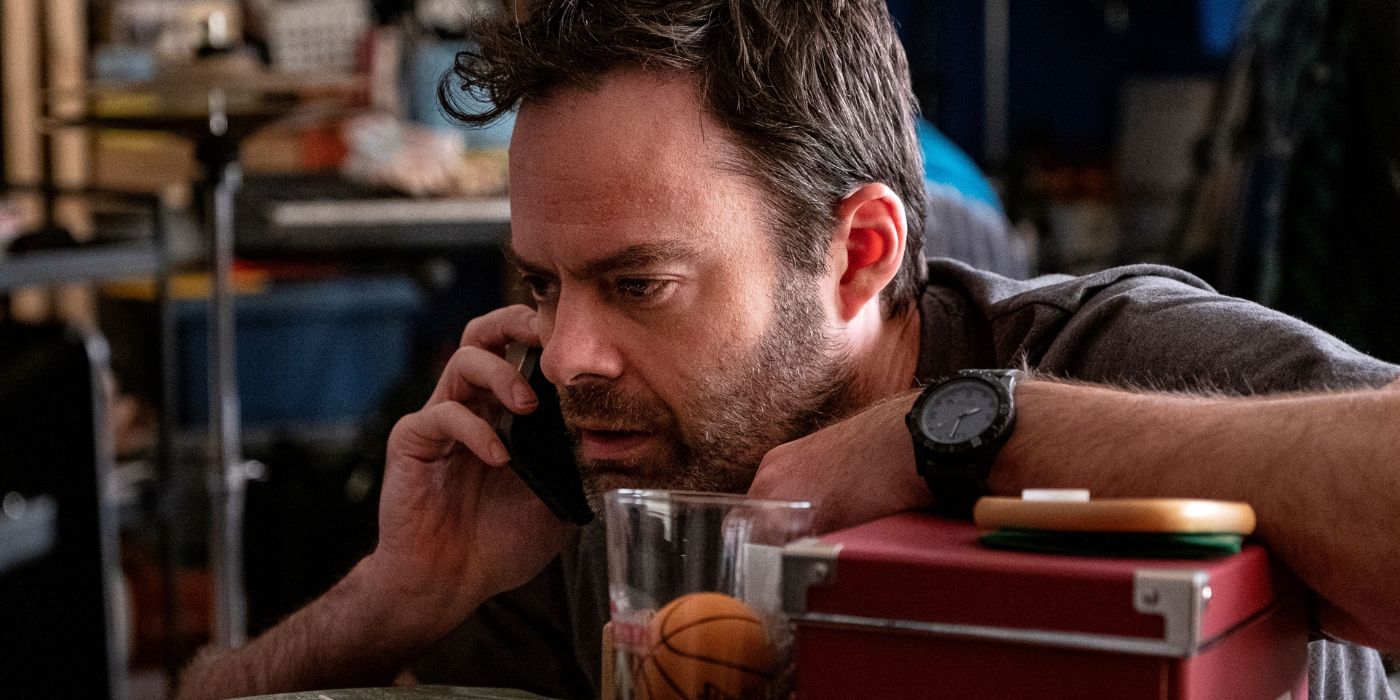In a period flooded with prestige shows on cable and streaming, Barry has managed to stand out from the bunch. Because of the nature of the industry nowadays, artists who are influenced by cinema are forced to work in television. As a result, the T.V. medium has been elevated as a true art form since the dawn of the 21st century. Nowhere is a cinematic throughline more evident on current programming than with the HBO comedy-drama Barry, created by Bill Hader and Alec Berg. A passionate cinephile himself, Hader's show owes much of its daring and unique storytelling to the filmography of Joel and Ethan Coen. When in doubt, it's best to not try to mimic the peculiar sensibilities and blend of genres and tone as the Coens, as the attempt will often fail to reach their heights. However, Hader and Berg are selective with homages and remain the authors of their vision, making Barry an original, envelope-pushing, piece of art and entertainment.
The Tonal Blend of Comedy and Drama in 'Barry'
For starters, the questionable genre placement of Barry is a perfect nod to the films of the Coen Brothers. Despite still competing as a comedy at the Emmys, is it really fair to place a show with this much darkness and psychological despair in the same category as Ted Lasso? Having noted that, there are undeniably hilarious line readings and sequences scattered throughout the series, even at the peak of Season 3's meditative look at the lives of broken souls. The Coens' films were no different. In the cases of Fargo and A Serious Man, in a seemingly unprecedented feat, isolated scenes evoke humor and sadness simultaneously.
As with the cast of characters envisioned by the sibling directors, Barry Berkman (Hader), Fuches (Stephen Root), and Gene Cousineau (Henry Winkler), are all made up of comically tragic arcs, and it is ultimately the predilection of the viewer whether to feel pity for these characters. The writers of Barry are effortless in their ability to execute dark comic lines while characters are conversing about serious subjects. Take for example Season 2, Episode 1, when Gene shares his suicidal contemplations with Barry. Referring to the Japanese suicide ritual, Harakiri, Barry confuses it for the legendary baseball broadcaster, Harry Caray. The show's use of irony is in-tune with the Coens' sense of humor, like in the third episode of Season 2, when Barry discovers that the assassin trainees all speak English, thus forcing him to awkwardly relieve his Chechen translator of his duties.
Season 3 of Barry soared for ambitious heights, not only with its tone but also in its range of subjects. The plot involving Sally (Sarah Goldberg) and the harsh endeavors of running a streaming series mirrors the biting satire of the industry in the Coens' Barton Fink. She experiences emotional turmoil as a result of her executives who view her show as a function in an algorithm rather than art. The scene in which Sally is delivered the unfortunate news of her show's cancelation, a remorseless verdict given by the executives that focus on "clusters," is written and executed like an awkward and bitterly sad exchange in a Coens' picture. In addition, think of the scene in Inside Llewyn Davis when the titular Llewyn's soulful song is rejected by the record label due to its lack of commercial viability. Barry is suitably set in Los Angeles in an environment of aspiring actors and writers. Its blend of equal intrigue in the world of organized crime and Hollywood complements the series' tonal shifts. Throughout Season 1, Hader and Berg got plenty of mileage out of the fish-out-of-water complex of an emotionally stunted war veteran turned hitman learning how to act.
Aimless Protagonists in 'Barry' and Coen Brothers Films
The HBO series is at its darkest in its introspection of the titular Barry. Beyond the surface of his violent occupation, it is slowly unraveled that Barry's psyche is rooted in nihilism. Because of his tortured past in the war, there is a block that causes him to be empty and emotionally vacant. The Coen Brothers have thrived off of a similar kind of examination of a soulless character, who oftentimes is their protagonist. They may not always be evil or display violent tendencies, such as Llewyn Davis or The Dude from The Big Lebowski, but their aimlessness in life is just as fascinating to dissect. Barry's motivations are ambiguous, but the series has shown that, when in doubt, he resorts to senseless violence to solve his problems. His appetite for destruction, similar to that of Anton Chigurh (Javier Bardem) of No Country for Old Men is what restricts him from finally breaking away and starting a brand-new life. Throughout the series, Barry's most dangerous foe is himself, even when the audience is led to believe that he knows right from wrong. As the premiere of the final season of Barry approaches this April, one has to suspect that the conclusions that the characters of Barry, Sally, Fuches, Gene, and NoHo Hank (Anthony Carrigan), will not be sent off with clean resolutions. When following the Coens playbook, even characters who accomplish their goals, such as Marge Gunderson (Frances McDormand) in Fargo, are left perplexed by the violent tendencies of humanity.
The Opposite Spectrums of Violence in 'Barry' in Relation to The Coens
Perhaps the most evident allusion to the filmography of the Coens is packaged in the show's depiction of senseless crime and mayhem. Since their 1984 debut Blood Simple, this has been the Coens' bread and butter. It is the most recognizable trait of the duo's style. Just like with their precise dialogue, their violence smoothly walks the thin line between comic and grave violence. Barry leans toward demonstrating the sheer brutality of violence and its grim impacts. Murders are shown in their rawest form, occurring suddenly and being messy. In the criminal underworld, Barry characterizes the two spectrums of crime that were previously embodied in the Coens' films. One is the bumbling criminal, exhibited by NoHo Hank and his crew, and the other is the cold, calculated assassin in the form of Barry. The duality of mischief was exemplified by the Coens with Fargo and No Country for Old Men.
As the HBO series has progressively delved deeper into the haunted soul of Barry, Fuches, and Gene, it has relied heavily on the follies and antic behavior of Hank to supply its comedy. However, various sequences of ferocious violence can conjure a nervous chuckle due to their randomness, as seen with Julie (Annabeth Gish), the widow of one of Barry's victims, accidentally shooting her son in the car as they plan to kill the hitman. The show-stopping Season 2 episode, "ronny/lily" is the most evident influence from the Coens, immediately reminding viewers of Raising Arizona. Hader and Berg channeled the supermarket setting and slapstick visual language of the Coens' second film to create their most cinematically remarkable episode to date. On the other hand, the impressive motorcycle chase in the Season 3 episode "710N," is soberly depicted without any musical score. This kind of subversive deafening silence was the driving force behind the intensity of No Country for Old Men.
Joel and Ethan Coen would have fun utilizing the characters of Barry for their unique comic and dramatic sensibilities. It is promising that writers and filmmakers who belong to a generation younger than the brothers are being properly influenced by their work, especially since the two have reached a crossroads in their careers. Hader and Berg best understand the overarching themes and minor quirks that define the Coens and use them to cement their vision. The clear cinematic inspiration of Barry is why the series stands out from the pack of prestigious cable and streaming dramas.




